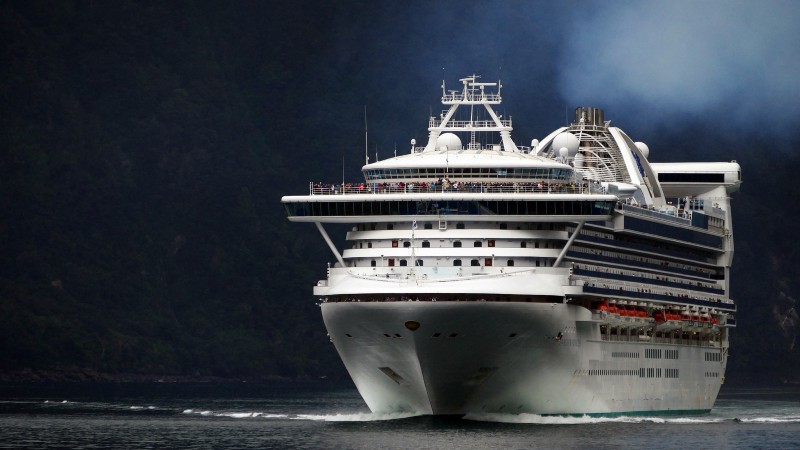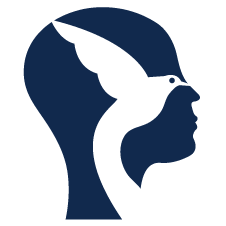I was born in the dusty streets of Africa, with high ambitions of becoming successful

As a child, I had so many dreams of what I wanted to be when I grew up: I dreamt to be a medical doctor. I was bright in school. In primary, I was always in top five, and in high school, I was two or three in the whole school. When my father died, things changed. We had to move to a high-density suburb (ghetto) in another city, because we couldn’t afford a place in a low-density area.
It was in 1999 when we moved. The economy was just starting to deteriorate under diplomatic sanctions. This was a tough period for my family, because we had no source of income. I and my brother had to man up and take responsibility for the family at the same time as going to school. I still remember some incidents where I had to wake up early in the morning before going to school to line up for mealie meal (our staple food), and ended up being late to school. On the other hand, my family members were doing the same thing. These were terrible moments for me and my family. Sometimes after getting the food, we could face dangers of robbers.
Because we had no money, we had to go to a school that was one hour away by foot. The high school didn’t have science subjects, but this didn’t stop me from trying to attain my goal. At the last two years of Ordinary level (the first stage of high school), I started to study physical science and biology on my own. My only problem was that I had no apparatus to do the experiments, and had to assume my observations and conclusions. I managed to get a grade C in the final examination for the two science subjects, but this was not enough to get me into a science class at Advance level for the last two years of high school. I ended up doing commercial subjects such as accounting, mathematics and management of business.
It was impossible with my salary for me to meet my family’s needs and save money for my college degree. I decided to focus on my family and do my studies later. This was still hard, because of the economy, and because people affiliated with the ruling party were getting better jobs first regardless of qualifications. I can tell you it was hard, and is still hard.
After five years of struggle, I was finally employed by an American cruise ship company. I came as an attendant, and in 2014 became their Marketing casino host. This is when everything started to shape up: I was now able to provide for the family and save money for my college degree at the same time. But things started to go badly again when I went back home. At first I wasn’t taking notice of it because I was just concentrating on seeing and helping my family.
In March of 2013 I was abducted, assaulted and threatened by three assailants who clearly identified themselves as state security agents. I left after that incident, and came back to the United States to work and seek refuge. Six months into my contract, something unexpected happened. I was falsely accused of sexual harassment by one of my workmates the night after we had a party. It was like a nightmare.
The next thing I knew, I was in the hands of CBP. They sent me in front of the judge that same night around 9–10pm, and the judge ordered me to pay a bail of $10,000 U.S. dollars or go to jail and wait for my trial. I had my debit card but I could not pay it. I tried to ask the clerk about how to pay the bail, but it was all in vain. Everyone was speaking Spanish, and no one seemed interested in helping me. Even the police officer that I had could barely speak a word in English. So at the end, they took me to jail, and to wait for my court date. I was put in a cell with a man who was boasting that he was in jail for raping men. I tell you, I couldn’t even sleep for all the ten days I was there and I was praying to be out soon. It was impossible for me to get assistance to make a phone call, because of language. The whole dorm was calling me Gringo. I was confused by the whole situation, and scared for my life, because I didn’t know what was going on around me.
After ten days, they took me to court. The public defender was there waiting for me. He said that the judge and he had already looked into my case and found out that I was guilty. I tried to ask him about my case, and kept insisting that I wanted to go to trial, but he kept telling me that I was guilty as charged. After I refused to plea, he went to talk to the judge. He came back and told me that if I didn’t take the plea, I would have to go back to jail and wait two or more months for my next trial.
This is when I realized that the whole scenario wasn’t fair, and somehow my only option was to take a plea.
Just imagining going back to that cell was a no starter. The public defender then came back to me with another option, of taking a plea to assault if I was saying I didn’t sexually harass my workmate. Before I made my decision, I told him of my situation with what happened to me back home and he told me not to worry, because this was a petty case offense.
I gave up and pleaded to assault, because I felt that even if I tried, I wasn’t going to get justice. I was just thinking of moving forward and forgetting about the whole situation. I was told that I was going to be released, and could make my way to Canada, where I wanted to apply for asylum. But what I didn’t know was that I was putting myself into a wicked system. I believed America was fair in all aspects. When I looked at the Constitution, I thought that no one was going to take advantage of me.
The moment I stepped out of court, I was told that I was going back to the jail and would get released from there. After six days in jail, I was told to pack up, and two officers from the detention center came to pick me up. I was confused, because the agreement in court was for me to be released. They took me to the detention center for the weekend and then on Sunday put me on the plane to another immigration detention center. When I arrived there, I realized that all that I was told was a lie. I hired a lawyer the next week, and explained my situation. He advised me to reopen my criminal case and fight for what was right.
After two months, I hired a criminal lawyer to help me reopen my case. The motion to reopen was put in Lower Court and after two months they denied the motion. I then appealed to Appellate Court and at the same time to the Supreme Court and both of the Courts agreed that the Lower Court should reopen my case. But the Lower Court, because of knowing their error in judgment, didn’t want to reopen the case — they kept appealing the Supreme Court and Appellate Court decision until July when they finally reopened the case.
In the process of all that, I lost my immigration lawyer because I had spent all that I had saved, and was completely broke. This was another painful moment. I had to go in front of the Immigration Judge alone, and I had no idea what to do. I informed my deportation officer that my case was open, but he told me that it was impossible for me to be transferred back to attend court.
After that I was transferred to a county jail. I guess it was a way to say no.
I wrote a letter to the judge, in vain. My criminal court date was set, but I wasn’t transferred, and my immigration case was denied.
With this unfairness on all sides, I started to realize that what I predicted about the United States wasn’t true. After running from a government which doesn’t regard human rights, I thought I was going to get fair treatment. The government where I am from doesn’t regard its people — it’s a government controlled by one man, and whatever he says goes. The police and military are all under him. You can’t say a word or show that you are not interested in the country’s affairs. If you are not on the side of the ruling party, you will be in danger of facing what I faced.
After going through all this, I wonder if there are any governments that are fair. The lies that I have been told throughout this whole case were just not fair. I have started to wonder if we consider other people’s feelings, especially when it comes to incriminating someone. Spending more than a year in immigration proceedings is taking time from my life. The officers in here talk to you like you are nothing, and at the end, they give you another lie. Here in these facilities, we are deprived of our rights. At one point, we were locked down for three days because of a problem they had with two detainees. The food that they give is so pathetic. During hurricane season, we were taken hundreds of miles away in chains.
That’s why they call it discretional, when you go in these courts. It’s not about what you present, but about how the judge is feeling that day. If he feels like he wants to release you regardless of what you did, he will. They will still deport you to a country like mine, where they know for sure that I am going to be persecuted. And because I am an immigrant, my company didn’t want to assist me in getting me out, even after proving my case and the BIA telling the courts that my removal wasn’t necessary. I tried to ask them if they had fired me, and for what reason, but there was no reason.
My prayer for this story is for the American people to wake up and smell the coffee. I pray that everyone will understand how wicked this system is, and do all they can to either rectify or remove it.
Best regards, Thomas Dube.


